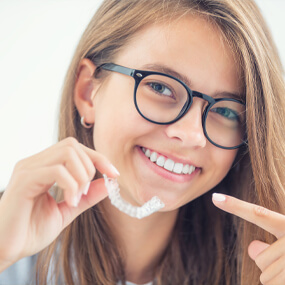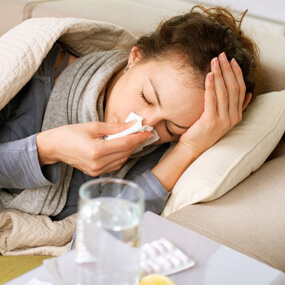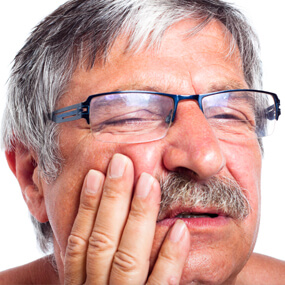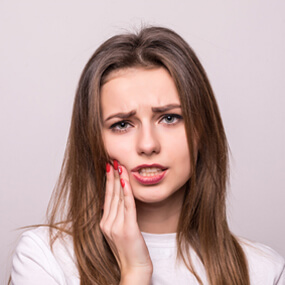The 8 Worst Diet Options for Oral Health
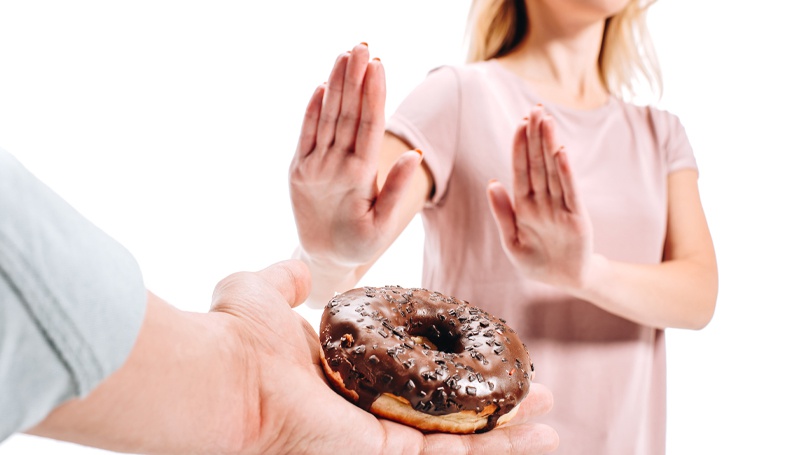
The foods you eat and beverages you drink have a very real effect on your overall health, and perhaps nowhere are those effects felt more directly than your teeth and gums. The worst foods for your teeth introduce sugars that bind with bacteria in your mouth to form plaque. Plaque is an adhesive substance that leads to tooth decay and gum disease and eventually solidifies into the more serious tartar. Plaque releases acids, but even before plaque forms, the sugars you eat interact with the bacteria in your mouth to create acids that attack your tooth enamel and cause cavities to develop.
According to the CDC, cavities are the most prevalent chronic disease affecting young people between ages 6 and 19. Cavities cause discomfort and pain. They can interfere with proper chewing, and they can lead to tooth abscesses and the eventual loss of the tooth. Brushing and flossing are crucial in order to remove plaque before it hardens into tartar. Plaque can harden even along and below the gumline, which is where it will lead to gingivitis, which is the earliest stage of gum disease.
To prevent plaque, you want to brush twice a day, floss daily, and see your dentist for an exam and cleaning at least every six months. You should also limit or altogether avoid the following foods and drinks:
- Carbonated Beverages – Soda and other soft drinks are empty calories. Even diet sodas come with costs, including damage to your teeth and gums. The Academy of General Dentistry published a case study that found that consuming large amounts of carbonated soda could be equivalent to drugs like crack cocaine and methamphetamine in terms of damage to your teeth. Even sugar-free carbonated drinks cause plaque to produce more acid that attacks your tooth enamel. Soda also dries your mouth, which means less saliva to wash food particles and bacteria away, and darker sodas can even stain your teeth. If you do treat yourself to a soda on occasion, never brush right away. It can actually accelerate the decay. Instead, you should rinse your teeth vigorously using water.
- Alcohol – Alcohol is not good for your overall health and so should always be consumed in moderation. Alcohol also has the unfortunate side effect of drying your mouth, which means less saliva. Saliva is imperative to oral health because it washes away food particles and bad bacteria. It also helps reverse the early stages of gum disease, tooth decay, and oral infections. Many alcoholic drinks are carbonated, which makes them a double whammy. When you do drink, take water breaks, which will help avoid the dry mouth and keep you hydrated. You may also consider fluoride rinses and oral hydration products.
- Bread – Bread is a common food item that is present at almost every meal of the day. Unfortunately, as you chew bread, your saliva breaks the starches down to sugars. It becomes a sticky paste-like substance that gets between your teeth. That leads to cavities. You may be unwilling to eliminate breads from your diet, but what you can do is avoid white bread and other heavily refined breads and instead opt for whole wheat, which contains less sugar that is easily broken down.
- Potato Chips – Potato chips are delicious and among the most popular snack foods in America. The bad news is that they are loaded with starch that breaks down into sugar. That sugar feeds the bad bacteria in your mouth and becomes plaque. Plaque does not just coat your teeth. It gets between them and even below the gumline. Most people never eat just one. That means a lot of acid production. Limit your chip intake, and when you do treat yourself, rinse vigorously with water and perhaps floss to dislodge food particles.
- Sour Candies – Candies are a no-brainer, right? But did you know that some candies are worse than others—a lot worse. Take sour candies. These are not just loaded with sugars. They also contain a wide range of different types of acids that are not found in other candies. Sour candies are also chewy, which means they stick to your teeth and are tough to remove. When you want to treat yourself, consider a simpler option, such as chocolate, which can be enjoyed and then easily washed away.
- Dried Fruits – Most people presume that dried fruits are a healthy snack, but that is not necessarily true when it comes to oral health. Many dried fruits—apricots, figs, prunes, raisins—are sticky. After chewing them, residue clings to teeth and gets in between them. That can really do a number on your teeth. The fresh versions of these fruits are much better options. If you do snack on dried fruits, rinse your mouth vigorously with water in order to dislodge the particles.
- Citrus – Citrus fruits like oranges, grapefruits, and lemons are loaded with vitamin C. They are also loaded with acids that erode tooth enamel and therefore make your teeth more prone to decay. Many people use lemons and limes to add flavor to their water, but doing so adds acids as well. These acids can also exacerbate mouth sores and other oral issues. If you do want to eat these fruits for their vitamins and antioxidants, stick to fresh fruits. Avoid the juices, and vigorously rinse with water once you finish.
- Ice – Chewing ice is rather common. Some do it for dietary reasons, and others because they simply enjoy it. How bad can frozen water be? Well, according to the American Dental Association, chewing substances as hard as ice can damage your tooth enamel. It can also lead to dental emergencies, such as cracked teeth and loosened crowns. Using ice to cool your drinks is fine. Just avoid chewing it!
Protect Your Teeth With Better Diet Choices
Your diet choices can have a big effect on your overall oral health. Jeffrey D. Clark, DDS, and his entire team at Scottsdale Cosmetic Dentistry Excellence want to help you make decisions that improve and maintain the health of your teeth and gums. Dr. Clark can provide you personalized advice and preventative care as well as a full range of cosmetic and restorative treatments. If you have any questions about the services we offer or would like to schedule your first visit, do not hesitate to call us today at 480 585 1853.
